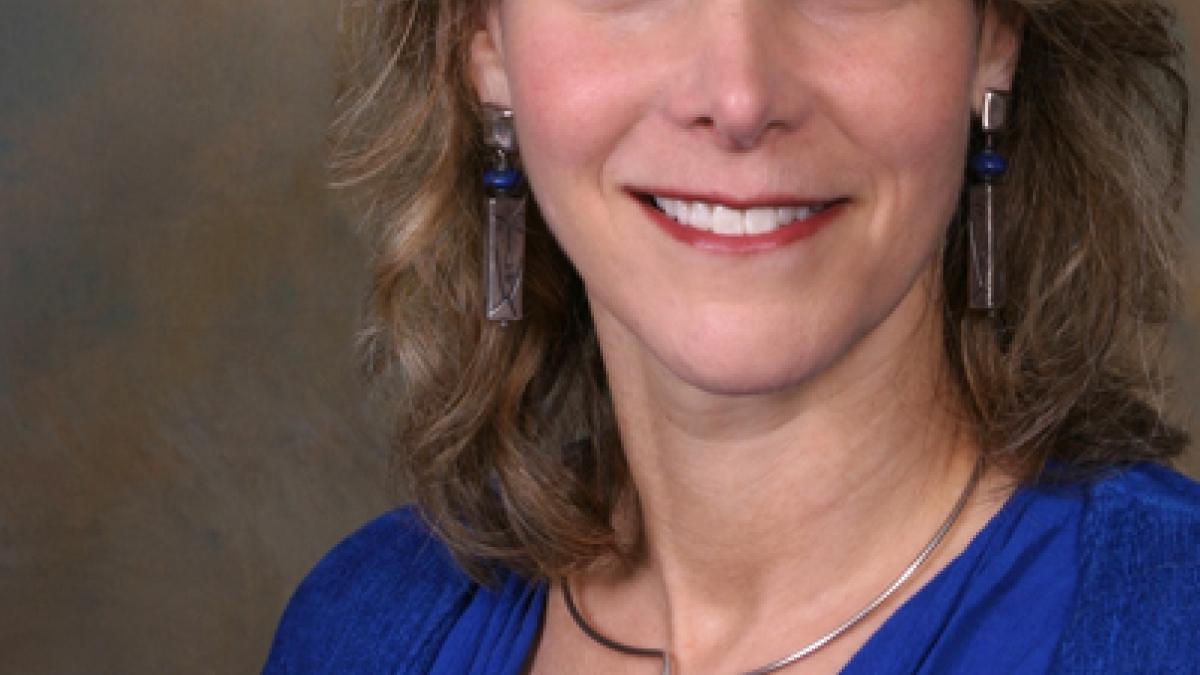Personalized care for breast cancer patients is topic of Esserman talk at ASU

The integration of molecular biology with a health care learning system to deliver better personalized care and improved outcomes for cancer patients, notably breast cancer patients, is a chief interest of Laura J. Esserman, a prominent breast cancer surgeon who will present a seminar Aug. 24 at Arizona State University.
Esserman, who is a professor of surgery and radiology at the University of California, San Francisco, will present her talk from 11:30 a.m. to 1 p.m., in the auditorium of the Biodesign Institute, 727 E. Tyler St., Tempe. The seminar, which will include time for Q&A, is free and open to the public. Refreshments will be provided.
Esserman leads a consortium of academic, private sector and advocacy partners involved with the I-SPY2 Trial, a groundbreaking clinical trial model that uses genetic or biological markers (biomarkers) from individual patients’ tumors to screen promising new treatments. (The Investigating Series Studies to predict Your Therapeutic Response using Imaging And molecular analysis, or I-SPY1 TRIAL, was a correlative science study for women with stage II/III breast cancer receiving neoadjuvant chemotherapy, where women received serial magnetic resonance imaging and core biopsies during the course of their therapy. I-SPY2 builds on this research.)
Esserman will discuss the I-SPY2 Trial in her talk titled “Novel Trial Design for Development and Approval of Targeted Therapies (Early Stage Breast Cancer).”
“It was rewarding to work with Dr. Esserman and a host of scientists, oncologists, advocates and the FDA through the Foundation of the National Institutes of Health (FNIH) to design the I-SPY2 Trial. It applies the best of what we know in areas such as biomarkers and adaptive trial design in the care setting to increase the efficiency of drug development and deliver better drugs to patients. Laura is a force for change in biomedicine,” said Anna Barker, director of ASU’s Transformative Healthcare Networks, co-director of the Complex Adaptive Systems Initiative (CASI) and former deputy director of the National Cancer Institute.
Esserman, who has a medical degree and an MBA from Stanford University, serves on the President’s Council of Advisors on Science and Technology (PCAST) Working Group on Advancing Innovation in Drug Development and Evaluation. She also is director the Carol Franc Buck Breast Care Center at the University of California, San Francisco. Her undergraduate degree is from Harvard.
Esserman’s work in breast cancer spans the spectrum from public policy issues to basic science and the impact of both on the delivery of clinical care. She is also engaged in developing 21st century informatics tools to enable tracking outcomes as a byproduct of care.
According to Esserman, “Delivery of effective medical care depends on advances in science and the way those advances are delivered and tailored to the patient.”
The Esserman seminar is sponsored by ASU’s Complex Adaptive Systems Initiative and the Biodesign Institute. Refreshments will be provided. A map showing the seminar location is online at http://www.biodesign.asu.edu/contact/locationmap. Additional information is available at 480-965-0115.